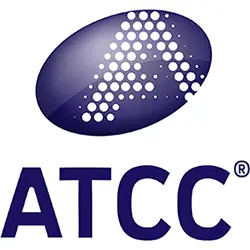ATCC: American Type Culture Collection

ATCC, the American Type Culture Collection, is a nonprofit organization whose mission focuses on the acquisition, authentication, production, preservation, development, and distribution of standard reference microorganisms, cell lines, and other materials. While maintaining traditional collection materials, ATCC develops high quality products, standards, and services to support scientific research and breakthroughs that improve the health of global populations. It was established in 1925 and is headquartered in Manassas, Virginia. ATCC’s vision is to become the leading developer and publisher of life science laboratory standards, which in-turn improves the quality of global laboratory systems, practices, and biomaterials. Standards from ATCC are available both individually, directly through the ANSI webstore, and as part of a Standards Subscription. If you or your organization are interested in easy, managed, online access to standards that can be shared, a Standards Subscription may be what you need - please contact us at: [email protected] or 1-212-642-4980 or Request Proposal Price.
Below are ATCC's best-selling standards. To find additional standards, please use the search bar above.
ANSI/ATCC ASN-0002-2021
Authentication Of Human Cell Lines: Standardization Of Short Tandem Repeat (STR) Profiling
This document elaborates a standardized procedure for unambiguous authentication and identification of human cell lines using Short Tandem Repeat (STR) profiling. The overall objective of this standard is to specify the methodology for STR profiling, data analyses, quality control of the data, interpretation of results, and implementation of a searchable public database. The revision is drastically changed from the original version and expanded with many new sections explaining different aspects of STR profiling of human cell lines, including: guidelines for avoiding cell line cross-contaminations, explanations of the data and associated artifacts, descriptions of how cell lines can differ from each other due to being mixed cultures or manifesting microsatellite instability (MSI), and other types of results. The text is aimed at both the laboratory personnel who produce and process the data (personnel in core and commercial labs) and at the research laboratory personnel from PI to student who must interpret the results. The goals of this new revision are that all of these researchers understand their STR data, can interpret them correctly, and can identify when the results are not valid. This understanding is essential for the production of valid STR profiles for human cell lines so that we can avoid using misidentified cell lines in biomedical research.
ANSI/ATCC ASN-0003-2015
Species-Level Identification of Animal Cells through Mitochondrial Cytochrome c Oxidase Subunit 1 (CO1) DNA Barcodes
This document is intended for the identification of the species of origin of a tissue/organism sample and not for the identification of the organ from which these cells derived. Neither traditional methods of cell line authentication nor DNA barcoding can identify from which tissue in an organism a sample of cells originate.
ANSI/ATCC ASN-0002-2021
Authentication Of Human Cell Lines: Standardization Of Short Tandem Repeat (STR) Profiling
This document elaborates a standardized procedure for unambiguous authentication and identification of human cell lines using Short Tandem Repeat (STR) profiling. The overall objective of this standard is to specify the methodology for STR profiling, data analyses, quality control of the data, interpretation of results, and implementation of a searchable public database. The revision is drastically changed from the original version and expanded with many new sections explaining different aspects of STR profiling of human cell lines, including: guidelines for avoiding cell line cross-contaminations, explanations of the data and associated artifacts, descriptions of how cell lines can differ from each other due to being mixed cultures or manifesting microsatellite instability (MSI), and other types of results. The text is aimed at both the laboratory personnel who produce and process the data (personnel in core and commercial labs) and at the research laboratory personnel from PI to student who must interpret the results. The goals of this new revision are that all of these researchers understand their STR data, can interpret them correctly, and can identify when the results are not valid. This understanding is essential for the production of valid STR profiles for human cell lines so that we can avoid using misidentified cell lines in biomedical research.





